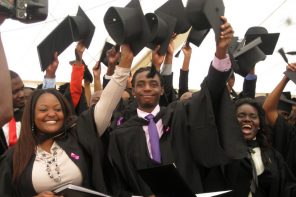The reasons why Africans migrate to their current countries of adoption are varied, and are as personal as they can get. However, some members of the African diaspora are embarking on the unpredictable journey back home, hoping to transform their African dream to an African reality.
Diaspora and Investment in home country
The World Bank estimates in 2011 showed that, the number of persons born in Africa and living, at the turn of the Millennium, in a country other than where they were born, was nearly 30 million, translating to approximately 3.6 % of the home population of Africa. An increasing number of Africans have been seeking greener pastures in Asia and the Middle East (around 340 million Africans making 1.3% of the total population of Africa are living on the Asiatic continent). Until the 2010s, the impact of the diaspora was only seeing through the prism of money transfer. According to the world bank, the diaspora out of Africa has sent more than 21.5 billion $ to the continent.
More than half of all African migrants that is, 13.2 million people, are said to live on the continent itself. When adding up what this part of African migrants also send to their home countries, the amount of money transfer quickly reaches 40 billion$ per year[1]. It is important to mention that this figure does not capture the entire scope of the money transfer in Africa since part of it is done through informal circuit. In 2005 for instance, informal money transferred represented 85% of the money sent to Sudan[2]. Besides the fact that this money is sent to help their families back home, it is also sent to invest in small businesses or for building a house with the prospects of a return. Indeed, 10 to 20% [3]of this 40 billion $ was transferred to the home country are therefore invested or saved in a bank account. All in all, money transfer has a positive impact on the continent. According to the African Development Review, an increase of 10% of money transferred (in terms of Gross Domestic Product) creates a 2.9% decrease of the poverty level. But that’s not enough to develop Africa.
The solution is to invest in human resources return
In recent times these numbers might fluctuate significantly as political, socio-cultural, economic and financial crisis across the globe heighten. Also, the growth of the African economy over the past years is a strong pull factor for most Africans in the diaspora who feel Africa has more to offer. “We’ve been seeing an increase in returns from some countries because of job insecurity (in the world economy) since the crisis (financial crisis) hit,” says Laura Lungarotti, International Organisation for Migration.
This is the reason why private individuals like Chams DIAGNE a founding member of the professional french network Viadeo, has established companies like Talent2Africa that seeks to “fill the skills gap that African employers face”. Recent studies show that 90% of African CEOs are concerned about the availability of talent, and 70% of candidates have difficulties accessing job offers in Africa. Therefore, the demand needs to meet the offer in the job market. Talent2Africa doesn’t have a database of candidates, but works through referral. Despite this solution, many companies still struggle to attract talents from the diaspora. According to Mr DIAGNE, there are three main reasons “the recruitment strategy, the gap between what the company wants vs what they sell or hire and the lengthy process and lapses in communication”.
Discover the #RepatStories of Olatorera Oniru
Knowing that 76% of young African diaspora is willing to get involved in the development of the continent, Talent2Africa is willing to help them find well-paid jobs. Mr DIAGNE admits that “most companies do not disclose the salary until you are selected for an interview”. However, candidates are always looking for salaries that are as high as those in Europe. Mr DIAGNE advises that “job candidates must take into consideration the role of the current market rate in a country.” Indeed, the salary will be adapted to the cost of living in countries such as Ivory Coast or Nigeria where the middle class is constantly growing.
The Standard Bank report “Understanding Africa’s middle class” published in 2014 revealed that, Nigeria’s middle class for instance, jumped six-fold between 2000 and 2014. This means 23 million people in the country are now considered to be middle class, consuming from $23 (18.4 euros) to $115 daily. This number is predicted to rise to 40 million by 2030. In the face of a bulging economy, business opportunities are surging by the day and the demand for skilled labour is simultaneously skyrocketing creating a gap which must be filled by talents ready to make a difference. “As you can see there has been a big boom for the arts, for fashion, music and film. And then there are others who are setting up agri-businesses, engineering, mining companies, you name it. You can feel there’s a big rush”– Baba Epega, Nigerian returnee.
Nevertheless, the decision to return home is not an easy one to take, especially in the absence of professional networks or institutional structures aimed at facilitating the transition process. The fear of the unknown remains a huge challenge to many aspiring Returnees.
[1] According to the International Fund for Agricultural Development
[2] African Development Bank
[3] According to the International Fund for Agricultural Development





